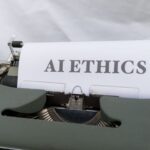Q: How do I deal with this matter of authorship violation and data fabrication?
I sent a letter to the editor about a clear violation of authorship as defined by the International Committee for Medical Journal Editors (ICMJE). Only three out of the 13 authors took responsibility for data accuracy and integrity. This raises a question about the fabrication of data. According to ICMJE, all authors should accept the responsibility. The Editor-in-Chief (EIC) replied to my letter stating that the authors acknowledged the error and a correction will follow.The more serious issue is that of the possible fabrication of data. I need advice on to whom I should report the careless attitude of the editor.
Firstly, as there seemed to be two issues here (authorship violation and data fabrication), we have accordingly modified the question to reflect the subjects of this query. So, let’s take the twin issues one by one.
Authorship violation
It’s not clear what the authorship issue is, but if you have referred to the ICMJE guidelines and have your intentions in the right place, we’ll go with that. As the paper is already published, the correct authorship can now be addressed through a correction, which the EiC has already shared with you. So, you should wait for the correction, perhaps in the next issue. In case you don’t see it then, you can check with the EiC again. Especially as the EiC has assured you there will be a correction, you should indeed wait for this.
Data fabrication
Yes, this is the more serious violation, because authorship issues affect fewer people, but this can affect many and more seriously, even in the matters of health and safety (depending on the field involved). We trust the correction will also take care of this. So, again, we would suggest you wait.
However, what may matter is the type or extent of data fabrication, that is, how gross or extensive it is. In case it is serious, rather than being corrected, the paper may need to be retracted. This is a more serious action, and all involved may need to weigh in carefully before arriving at a decision. We don’t have enough information on this in your query. So, we shall not be able to provide inputs on this matter. For now, we can provide this link if it helps clarify matters: What authors need to know about errata, expressions of concern, and retractions
Now, there are actually two more points in your query. Let’s get to them as well.
Editor’s attitude
It’s not clear which editor you are referring to, the Associate Editor (AE) or the EiC. We understand you are probably referring to the EiC, as the final decision was theirs and because they are the one who has communicated with you now. From what we see in this query, yes, the journal/AE/EiC may have slipped here, but slip-ups do happen. Again, from what we see here, the editor/s seem intent on fixing the matter. So, we are not sure their attitude is ‘callous,’ at least, just not yet.
Note that editors have a lot on their plate, including many ‘fires.’ So, if they are taking a while resolving this, it may be that there is a lot of stuff they have to do in the background for this to reflect in the foreground, along with other fires and other daily challenges and tasks they have to deal with. So, it would help to give them the benefit of the doubt, or at least, some time.
External support
Note that while various industry bodies, from ICMJE to COPE, have guidelines in place for issues such as authorship and data fabrication, these bodies can only guide – it is not in their purview to resolve matters. In fact, there is no real industry body you can take your plaint to. These matters are usually resolved between the journal editors and the authors, which is just what is hopefully happening here.
Having said that, some individuals and groups do keep a vigil (much like yourself) for bad science. When they come across rogue science or rogue scientists, they take necessary actions to ensure these are repealed or censured (and hopefully never repeated), as the case may be. We will leave you to find out more about such people or groups. However, an individual and a group each we do know of are Elisabeth Bik (who looks more into issues of image manipulation) and Retraction Watch.
On our site, you may learn more about Elisabeth Bik here: ‘I have found about 2,000 problematic papers,’ says Dr. Elisabeth Bik
You may learn more about Retraction Watch here.
Finally, as you are quite keen on ethical issues in research, specifically authorship, you may find these courses relevant:
- How to ensure ethical authorship when collaborating as researchers
- How to avoid retractions and publish ethically
Hope that helps. All the best for your next actions.
Thanks for your query. We have referred this matter to our senior expert. We shall get back shortly. Until then, you may refer to the following related resources for insights on the matter:


